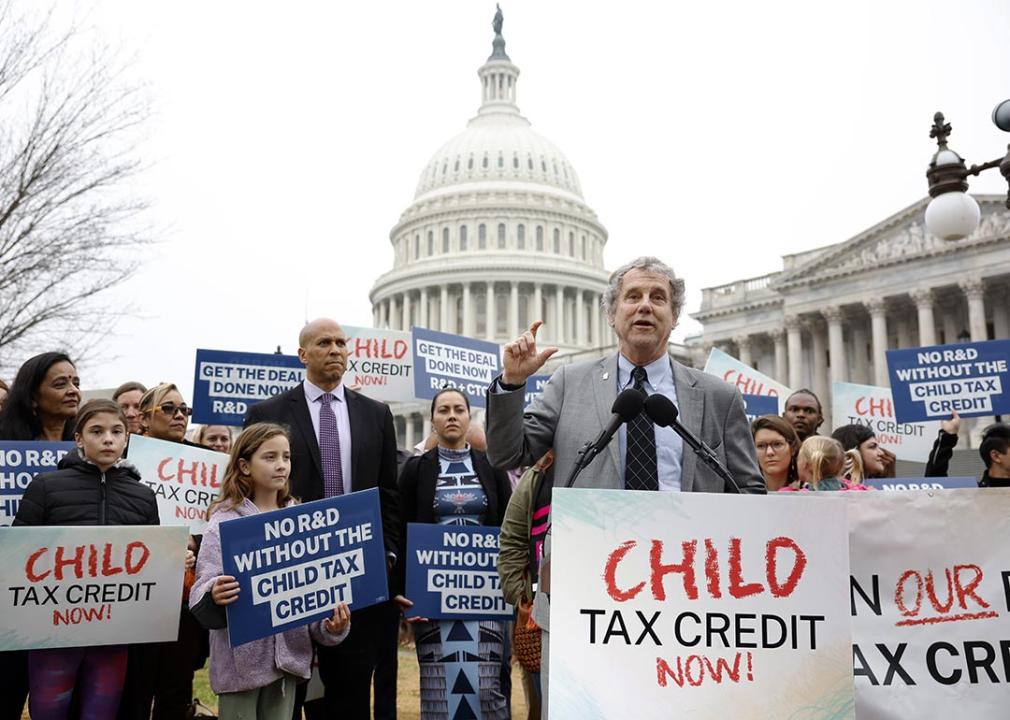The Daily Yonder looked into a study that found that a child tax credit expansion not only lowered financial stress, but also improved mental health for families.
This item is available in full to subscribers.
We have recently launched a new and improved website. To continue reading, you will need to either log into your subscriber account, or purchase a new subscription.
If you are a current print subscriber, you can set up a free website account by clicking here.
Otherwise, click here to view your options for subscribing.
Please log in to continue |
|

Tax benefits, including some that resemble the bi-partisan tax bill passed on Jan. 31 in the House of Representatives, could help reduce anxiety and depression among low-income families, a study shows.
The Daily Yonder looked into a study conducted by a Harvard University research center, which found that the adults in low-income families that received the Child Tax Credit during the 2021 expansion of the program were less likely to suffer from symptoms of depression and anxiety.
The head of the research team for the study said it appears that better mental health resulted from a reduction in financial stress.
"We didn't actually find any changes in the use of mental health services," said Rita Hamad, who heads the Social Policies for Health Equity Research Center at the Harvard T.H. Chan School of Public Health. She made the statement in a recent interview with Spotlight on Poverty & Opportunity.
"[This] suggests to us that mental health didn't improve because all of a sudden people had money that they were going to use on getting medications or going to therapy, but rather that people's stress levels were improving because they had less financial stress."
She said that conclusion is corroborated by other studies that found low-income recipients of the tax credit spent the money on food, housing, and other basic needs.
The study looked at data from 2021, when the temporary Child Tax Credit expansion provided families up to $3,600 per child, instead of $2,000. The eligibility criteria were extended to the lowest-income families who didn't make enough money to receive the credit on their taxes. Before the 2021 expansion, the credit was only awarded to middle-income families. The 2021 changes also disbursed monthly rather than as an annual tax refund.
These changes meant that low-income families who had previously been ineligible – a disproportionate number of them from rural areas, from communities of color, families with young children, and single parents, according to Columbia University's Center on Poverty and Social Policy – were able to benefit from the child tax credit.
The temporary expansion lifted an estimated 2.1 million children above the poverty line in 2021, according to the U.S. Census Bureau.
The temporary expansion expired at the end of 2021.
Rural families were disproportionately helped by the expansion because family incomes are generally lower in rural areas than urban ones.
Proponents of the Child Tax Credit have been trying to extend the expansion ever since its enactment. These advocates received a partial victory this week when the House passed a package that would increase the payment slightly (from $2,000 up to $2,100). The plan would also extend eligibility to about 80% of the families who don't earn enough to receive the credit currently.
The families of about 19 million children don't earn enough to receive the credit. The change in eligibility would mean the families of about 16 million of these children would receive the payment, according to the Center for Budget and Policy Priorities.
Hamad from the Harvard research center said the House proposal would not lift as many children out of poverty as the pandemic-era changes did.
"What's different from the 2021 expansion is it's not providing any benefit to the lowest income people and people with zero income, who would still be left behind," she told Spotlight on Policy and Opportunity. "But again, it's better than nothing and it will definitely be hugely helpful to those families."